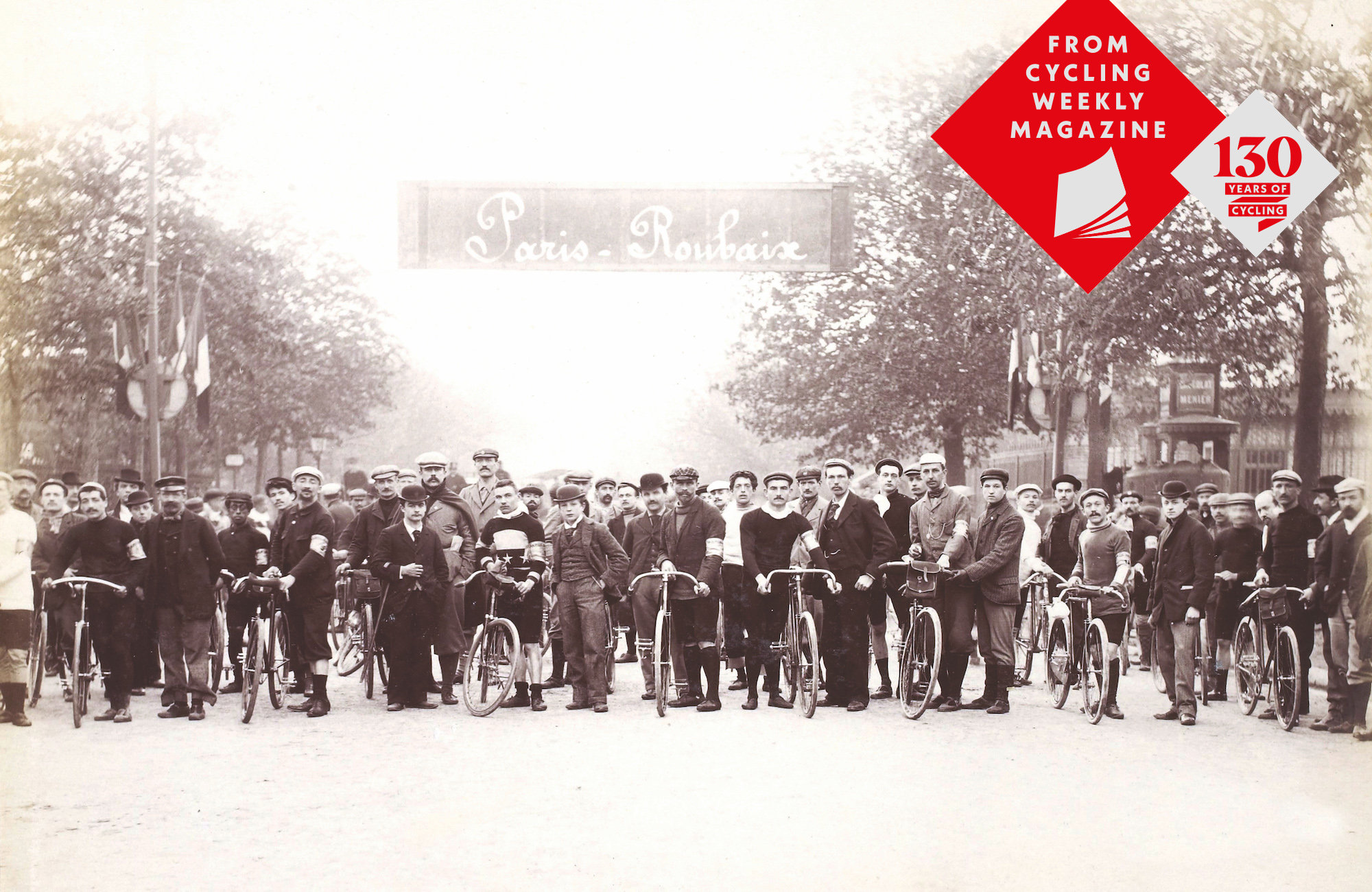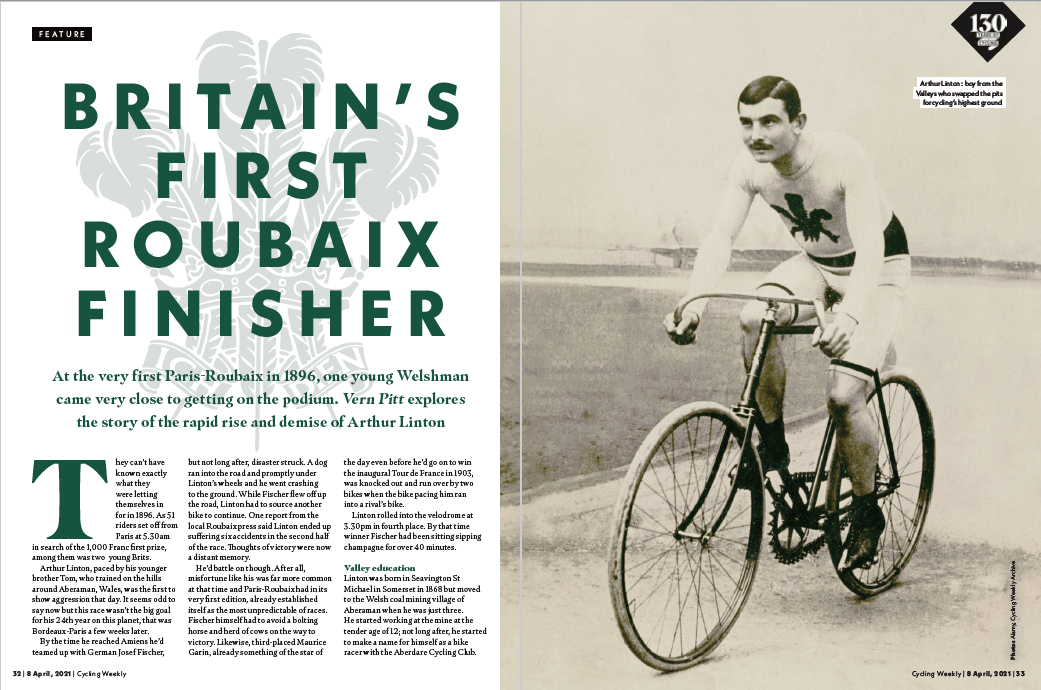Britain's first Paris-Roubaix Finisher


The latest race content, interviews, features, reviews and expert buying guides, direct to your inbox!
You are now subscribed
Your newsletter sign-up was successful
At the very first Paris-Roubaix in 1896 one young Welshman came very close to getting on the podium. Vern Pitt explores the story of the rapid rise and demise of Arthur Linton.
They can’t have known exactly what they were letting themselves in for in 1896. As 51 riders set off from Paris at 5.30am in search of the 1,000 Franc first prize among them was two young Brits.
Arthur Linton, paced by his younger brother Tom, who trained on the hills around Aberaman, Wales, was the first to show aggression that day. IT seems odd to say now but this race wasn’t the big goal for his 24th year on this planet, that was Bordeaux Paris a few weeks later.
>>> Subscribe to Cycling Weekly magazine and never miss and issue
By the time he reached Amies he’d teamed up with German Josef Fischer but not long after disaster struck. A dog ran into the road and promptly under his wheels, he went crashing to the ground, Fischer flew off up the road and Linton had to source another bike to continue. One report from the local Roubaix press said Linton ended up suffering six accidents in the second half of the race. Thoughts of victory were now a distant memory.
He’d battle on though. After all misfortune like his was far more common at that time and Paris-Roubaix was in that first edition fast establishing itself as a crucible of the unpredictable. Fischer himself had to avoid a bolting horse and herd of cows on the way to victory. Likewise third placed Maurice Garin, already something of the star of the day even before he’d go on to win the inaugural Tour de France in 1903, was knocked out and run over by two bikes when the triple pacing him ran into a rival’s bike.
Linton rolled into the velodrome at 3.30pm in fourth place. By that time winner Fischer had been sitting sipping champagne for over forty minutes.
The latest race content, interviews, features, reviews and expert buying guides, direct to your inbox!

Linton was born in Seavington St Michael in Somerset in 1868 but moved to the Welsh coal mining village of Aberaman when he was just three. He started working at the mine at the tender age of 12 but not long after he started to make a name for himself as a bike racer with the Aberdare Cycling Club.
>>>> 130 years of cycling - how Cycling magazine was launched in 1891
He’d start winning local races and then in 1893 he entered the prestigious 24-hour Cuca Cocoa Cup at Herne Hill in London. He was leading at the 100 mile mark but was overhauled by Frank Shortland, an Englishman and a dominant force on the racing scene of the day.
You can read the rest of this article in the April 8 issue of Cycling Weekly magazine, available in the shops or online. You can also subscribe to the magazine, save on the cover price and ensure you never miss an issue.

Editor of Cycling Weekly magazine, Simon has been working at the title since 2001. He first fell in love with cycling in 1989 when watching the Tour de France on Channel 4, started racing in 1995 and in 2000 he spent one season racing in Belgium. During his time at CW (and Cycle Sport magazine) he has written product reviews, fitness features, pro interviews, race coverage and news. He has covered the Tour de France more times than he can remember along with the 2008 and 2012 Olympic Games and many other international and UK domestic races. He became the 134-year-old magazine's 13th editor in 2015 and can still be seen riding bikes around the lanes of Surrey, Sussex and Kent. Albeit a bit slower than before.